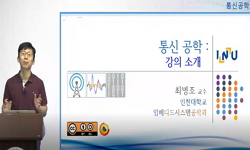This study aims at investigating the overall effects of corrective feedback provided by the teacher on the development of EFL students’ writing accuracy and the relationship between error types and revision outcomes in accordance with writing genre ...
http://chineseinput.net/에서 pinyin(병음)방식으로 중국어를 변환할 수 있습니다.
변환된 중국어를 복사하여 사용하시면 됩니다.
- 中文 을 입력하시려면 zhongwen을 입력하시고 space를누르시면됩니다.
- 北京 을 입력하시려면 beijing을 입력하시고 space를 누르시면 됩니다.
부가정보
다국어 초록 (Multilingual Abstract)
For the present study, 12 college students’ writing samples were collected according to the three genres of descriptive, explorative, and argumentative essays. Corrective feedback was given by the instructor two times on the 1st and 2nd drafts of the essays, and the students were asked to revise the drafts based on the feedback provided by the instructor. They had to produce three drafts for each genre. The grammatical errors they committed in writing were analyzed in the categories of genre, the frequency of draft, students’ revision behaviors (six types), and error types (13 types). The findings from the study were that corrective feedback was fairly conducive to the development of the EFL students’ writing accuracy, and that the students showed differing levels of progress through different error revision behaviors in their essay writing in terms of error types depending upon genre and the frequency of draft.
This study aims at investigating the overall effects of corrective feedback provided by the teacher on the development of EFL students’ writing accuracy and the relationship between error types and revision outcomes in accordance with writing genre and the frequency of draft.
For the present study, 12 college students’ writing samples were collected according to the three genres of descriptive, explorative, and argumentative essays. Corrective feedback was given by the instructor two times on the 1st and 2nd drafts of the essays, and the students were asked to revise the drafts based on the feedback provided by the instructor. They had to produce three drafts for each genre. The grammatical errors they committed in writing were analyzed in the categories of genre, the frequency of draft, students’ revision behaviors (six types), and error types (13 types). The findings from the study were that corrective feedback was fairly conducive to the development of the EFL students’ writing accuracy, and that the students showed differing levels of progress through different error revision behaviors in their essay writing in terms of error types depending upon genre and the frequency of draft.
참고문헌 (Reference)
1 Krashen, S. D., "Writing: Research, theory, and application" Pergamon Press 1984
2 Celce-Murcia, M., "Why it makes sense to teach grammar in context and through discourse, In Focus on form in classroom second language acquisition" Cambridge University Press 119-133, 2002
3 Sheppard, K., "Two feedback types: Do they make a difference?" 23 : 103-110, 1992
4 Silva, T., "Toward an understanding of the distinct nature of L2 writing : The ESL research and its implications" 27 : 657-675, 1993
5 Ferris, D., "The “grammar correction” debate in L2 writing: Where are we, and where do we go from here?" 13 : 49-62, 2004
6 Bitchener, J., "The value of a focused approach to written corrective feedback" 12 : 409-431, 2008
7 Hendrickson, J. M., "The treatment of error in written work" 64 : 216-221, 1980
8 Long, M. H., "The role of the linguistic environment in second language acquisition, In Handbook of research on second language acquisition" Academic 413-468, 1996
9 Reid, J. M., "The process of paragraph writing" Prentice Hall Regents 1994
10 Leki, I., "The preferences of ESL students for error correction in college level writing classes" 24 : 203-218, 1991
1 Krashen, S. D., "Writing: Research, theory, and application" Pergamon Press 1984
2 Celce-Murcia, M., "Why it makes sense to teach grammar in context and through discourse, In Focus on form in classroom second language acquisition" Cambridge University Press 119-133, 2002
3 Sheppard, K., "Two feedback types: Do they make a difference?" 23 : 103-110, 1992
4 Silva, T., "Toward an understanding of the distinct nature of L2 writing : The ESL research and its implications" 27 : 657-675, 1993
5 Ferris, D., "The “grammar correction” debate in L2 writing: Where are we, and where do we go from here?" 13 : 49-62, 2004
6 Bitchener, J., "The value of a focused approach to written corrective feedback" 12 : 409-431, 2008
7 Hendrickson, J. M., "The treatment of error in written work" 64 : 216-221, 1980
8 Long, M. H., "The role of the linguistic environment in second language acquisition, In Handbook of research on second language acquisition" Academic 413-468, 1996
9 Reid, J. M., "The process of paragraph writing" Prentice Hall Regents 1994
10 Leki, I., "The preferences of ESL students for error correction in college level writing classes" 24 : 203-218, 1991
11 Krashen, S. D., "The natural approach: Language acquisition in the classroom" Pergamon Press 1983
12 Krashen, S. D., "The input hypothesis: Issues and implications" Longman 1985
13 Peyton, J. K., "The influence of writing task on ESL students’ written production, In Dialogue journals in the multilingual classroom: Building language fluency and writing skills through written interaction" Ablex Publishing 196-229, 1993
14 Gu, S., "The impact of negative feedback, noticing, and modified output on EFL question development" 40 : 270-278, 2008
15 Pawlak, M., "The feasibility of integrating form and meaning in the language classroom: A qualitative study of classroom discourse" 30-31 : 283-294, 2005
16 Chandler, J., "The efficacy of various kinds of error feedback for improvement in the accuracy and fluency of L2 student writing" 12 : 267-296, 2003
17 Frantzen, D., "The effects of grammar supplementation on written accuracy in an intermediate Spanish content course" 79 : 329-344, 1995
18 Chaney, S., "The effect of error types on error correction and revision" California State University 1999
19 Truscott, J., "The effect of error correction on learners’ ability to write accurately" 16 : 292-305, 2007
20 DeKeyser, R. M., "The effect of error correction on L2 grammar knowledge and oral proficiency" 77 : 501-514, 1993
21 Bitchener, J., "The effect of different types of corrective feedback on ESL student writing" 14 : 191-205, 2005
22 Truscott, J., "The case for"the case for grammar correction in L2 writing classes" : A response to Ferris" 8 : 111-122, 1999
23 Ferris, D., "The case for grammar correction in L2 writing classes : A response to Truscott" 8 : 1-10, 1999
24 Truscott, J., "The case against grammar correction in L2 writing classes" 46 : 327-369, 1996
25 Hinkel, E., "Teaching academic ESL writing: Practical techniques in vocabulary and grammar" Lawrence Erlbaum 2004
26 Hedgcock, J., "Taking stock of research and pedagogy in L2 writing, In Handbook of research in second language teaching and learning" Lawrence Erlbaum Associates 597-613, 2005
27 Hinkel, E., "Second language writers’ text: Linguistic and rhetorical features" Lawrence Erlbaum 2002
28 Gass, S., "Second language acquisition: An introductory course" Erlbaum 1994
29 Robb, T., "Salience of feedback on error and its effect on EFL writing quality" 20 : 83-95, 1986
30 Lalande, J. F. II., "Reducing composition errors: An experiment" 66 : 140-149, 1982
31 Selinker, L., "Rediscovering interlanguage" Longman 1992
32 Mukattash, L., "Persistence of fossilization" 24 : 187-203, 1986
33 Panova, I., "Patterns of corrective feedback and uptake in an adult ESL classroom" 36 (36): 573-595, 2002
34 Lin, Y-H., "Negative feedback incorporation among high-proficiency and low-proficiency Chinese-speaking learners of Spanish" 46 (46): 567-611, 1996
35 Hino, J., "Linguistic information supplied by negative feedback: A study of its contribution to the process of second language acquisition" University of Pennsylvania 2006
36 Dulay, H. C., "Language two" Oxford University Press 1982
37 Brown, H. D., "Language assessment: Principles and classroom practices" Longman 2007
38 Guenette, D., "Is feedback pedagogically correct? Research design issues in studies of feedback on writing" 16 : 40-53, 2007
39 Gass, S., "Input, interaction, and the second language learner" Erlbaum 1997
40 McDonough, K., "Identifying the impact of negative feedback and learners’ responses on ESL question development" 27 : 79-103, 2005
41 Rutherford, W., "Grammar and second language teaching" Newbury House 1988
42 Doughty, C., "Focus on form in classroom second language acquisition" Cambridge University Press 1998
43 Hedgcock, J., "Feedback on feedback : Assessing learner receptivity in second language writing" 3 : 141-163, 1994
44 Cohen, A. D., "Feedback on compositions: Teacher and student verbal reports, In Second language writing: Research insights for the classroom" Cambridge University Press 155-177, 1990
45 Bitchener, J., "Evidence in support of written corrective feedback" 17 : 102-118, 2008
46 Ferris, D., "Error feedback in L2 writing classes: How explicit does it need to be?" 10 : 161-184, 2001
47 Truscott, J., "Error correction, revision, and learning" 17 : 292-305, 2008
48 Hendrickson, J. M., "Error correction in foreign language teaching : Recent theory, research, and practice" 62 : 387-398, 1978
49 Semke, H. D., "Effects of the red pen" 17 : 195-202, 1984
50 Hartshorn, K. J., "Effects of dynamic corrective feedback on ESL writing accuracy" 44 (44): 84-109, 2010
51 Ferris, D., "Does error feedback help student writers? New evidence on the short- and long-term effects of written error correction, In Feedback in second language writing: Contexts and issues" Cambridge University Press 81-104, 2006
52 Truscott, J., "Dialogue : Evidence and conjecture on the effects of correction : A response to Chandler" 13 : 337-343, 2004
53 Rutherford, W., "Consciousness-raising and universal grammar" 6 (6): 274-282, 1985
54 Folse, K. S., "Blueprints 1: Composition skills for academic writing" Houghton Mifflin 2003
55 Weigle, S. C., "Assessing writing" Cambridge University Press 2002
56 Goring Kepner, C., "An experiment in the relationship of types of written feedback to the development of second-language skills" 75 : 305-313, 1991
57 White, L., "Against comprehensible input" 8 (8): 95-110, 1987
58 Ellis, R., "A typology of written corrective feedback types" 63 (63): 97-107, 2009
59 Ellis, R., "A theory of instructed second language acquisition, In Implicit and explicit language learning" Academic Press 79-114, 1994
동일학술지(권/호) 다른 논문
-
An Investigation on Written Errors from Low Level College EFL Learners
- 팬코리아영어교육학회
- Cheongsook Chin
- 2013
- KCI등재
-
- 팬코리아영어교육학회
- Jooeun Jung
- 2013
- KCI등재
-
A Study on the Use of Conjunctions by Korean English Learners
- 팬코리아영어교육학회
- Yoon-Jung Kim
- 2013
- KCI등재
-
Effects of Corrective Feedback on College Students' English Writing Accuracy
- 팬코리아영어교육학회
- Jeong-Won Lee
- 2013
- KCI등재
분석정보
인용정보 인용지수 설명보기
학술지 이력
| 연월일 | 이력구분 | 이력상세 | 등재구분 |
|---|---|---|---|
| 2026 | 평가예정 | 재인증평가 신청대상 (재인증) | |
| 2020-01-01 | 평가 | 등재학술지 유지 (재인증) |  |
| 2017-01-01 | 평가 | 등재학술지 유지 (계속평가) |  |
| 2013-01-01 | 평가 | 등재 1차 FAIL (등재유지) |  |
| 2010-01-01 | 평가 | 등재학술지 유지 (등재유지) |  |
| 2008-01-01 | 평가 | 등재학술지 유지 (등재유지) |  |
| 2005-01-01 | 평가 | 등재학술지 선정 (등재후보2차) |  |
| 2004-01-01 | 평가 | 등재후보 1차 PASS (등재후보1차) |  |
| 2002-01-01 | 평가 | 등재후보학술지 선정 (신규평가) |  |
학술지 인용정보
| 기준연도 | WOS-KCI 통합IF(2년) | KCIF(2년) | KCIF(3년) |
|---|---|---|---|
| 2016 | 0.75 | 0.75 | 0.77 |
| KCIF(4년) | KCIF(5년) | 중심성지수(3년) | 즉시성지수 |
| 0.7 | 0.68 | 1.275 | 0.18 |




 KCI
KCI




